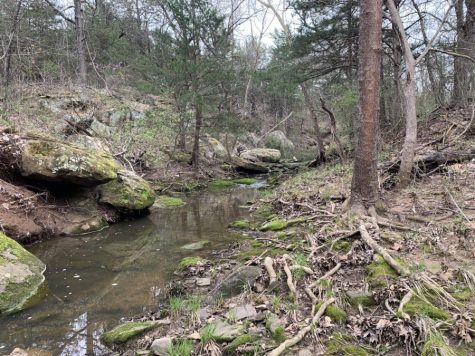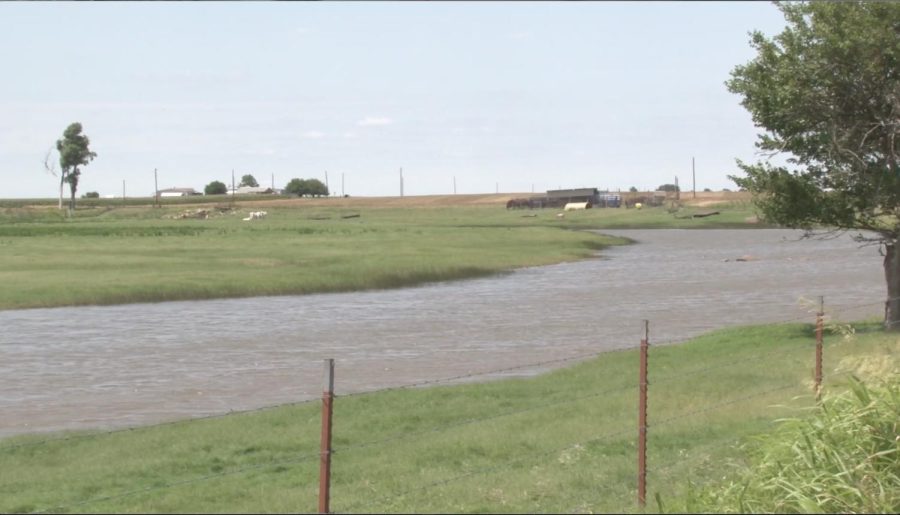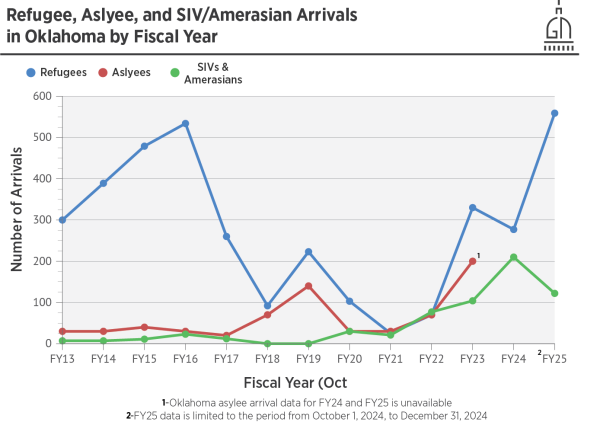Oklahoma delegation applauds Court ruling restricting powers of the EPA
Standing water such as that found in this Texas farm field will no longer be subject to regulations issued by the U.S. EPA under a Supreme Court ruling issued May 25, 2023. (Photo provided by Texas Farm Bureau)
WASHINGTON – The Supreme Court ruled Thursday that the Environmental Protection Agency (EPA) does not have authority over certain bodies of water.
In a 5 – 4 ruling that continued a conservative leaning court’s narrowing of environmental regulations, the court settled a long-standing case that Oklahoma delegates were hoping would overturn some Biden administration policies regarding the so-called Waters of the United States.
The Supreme Court’s opinion on the case came from associate justice Samuel Alito. He said that although the Clean Waters Act has been a success, it still needs some work.
“Before its enactment in 1972, many of the Nation’s rivers, lakes, and streams were severely polluted, and existing federal legislation had proved to be inadequate,” Alito wrote in a decision that all justices arrived at in three concurring opinions.
“Today, many formerly fetid bodies of water are safe for the use and enjoyment of the people of this country. There is, however, an unfortunate footnote to this success story: the outer boundaries of the Act’s geographical reach have been uncertain from the start.”
The Michael and Chantell Sackett family bought land in Idaho south of the Canadian border near Priest Lake back in 2004. They broke ground with a plan to build a home on the property but the EPA stepped in a few months later telling them to stop construction. They failed to complete assessments to obtain Clean Water Act permits and proceeded construction.
The EPA told the Sacketts they had violated the Clean Water Act of 1972 and were required to stop construction immediately or face fines and penalties. Instead, the Sacketts decided they wanted to push back against the EPA.
Rep. Kevin Hern (R-Tulsa) said he’s pleased with the court’s ruling going in favor of the Idaho family.
“This was an important decision limiting federal government overreach for private property owners, including farmers and ranchers simply trying to manage their land,” Hern said in an emailed statement to Gaylord News. “We must not allow the Biden Administration to usurp authority over things outside their jurisdiction – a principle evident in the Court’s decision today.”
The White House wasted little time in expressing its displeasure at the decision.
During the White House’s daily Press Briefing, Press Secretary Karine Jean-Pierre said the White House does not agree with the decision.
“The court’s decision aims to take our country backward,” said Press Secretary Karine Jean-Pierre during the White House’s daily briefing. “It will jeopardize the sources of clean drinking water for farmers, businesses, and millions of Americans.”

But Rep. Frank Lucas (R-Cheyenne) said the ruling is a win for rural American and Oklahoman ranchers and farmers.
“Today’s unanimous decision by the Supreme Court to define wetlands regulated by the Clean Water Act takes a step towards clarity, regulatory certainty, and allowing landowners to continue to be their own responsible steward of their land,” Lucas said. “Now that the Court has ruled in conflict with the Administration’s rule, the Biden Administration must immediately rescind its burdensome proposed rule.”
Sen. Markwayne Mullin (R-Westville) said the ‘waters of the United States’ (WOTUS) rule has been troublesome from the start.
“The Obama-era WOTUS rule has been a headache for Oklahoma farmers, ranchers, and landowners, which seeks to unlawfully regulate every creak, stream, and pond in America,” Mullin said in an emailed statement.
Oklahoma Farm Bureau President Rodd Moesel said that it’s encouraging to see limits on the EPA’s reach on waters of the United States.
“Farmers and ranchers are the original stewards of the land, and they have a generations-long commitment to the responsible use of our natural resources, including water,” Moesel said.
“Oklahoma agriculture producers need to be regarded as trusted partners in ensuring environmental quality, and we hope today’s ruling is the first step to creating a national framework that will consider our industry’s commitment to responsible water use and water quality to empower our farmers and ranchers to continue raising food, fiber, and fuel,” he said.
The Oklahoma delegation was unified in efforts to overturn the Biden Administration’s efforts to expand the federal government’s jurisdiction over bodies of ‘water in the United States’ (WOTUS) since the House passed a resolution to block Biden’s new rule. Every Oklahoman in Congress ended up voting for that resolution.
Oklahoma and 25 other states blocked the new water rules back in April. The majority-Republican House and Congress wanted to keep the definition of federal waters the same as it was under former President Donald Trump: bodies of water that are navigable.
Earlier this year, Sen. James Lankford (R-Oklahoma City) released a statement on the topic of the Clean Waters Act saying that it’s not about clean water, but about federal government control.
“We can protect our water without giving near total control of our land to the Washington bureaucracy,” he said.
Although Oklahoma’s delegation agreed with the decision helps private landowners, the EPA indicated its disappointment.
“The Biden-Harris Administration has worked to establish a durable definition of ‘waters of the United States’ that safeguards our nation’s waters, strengthens economic opportunity, and protects people’s health while providing the clarity and certainty that farmers, ranchers, and landowners deserve,” EPA Administrator Michael S. Regan said in a statement.
“A common sense and science-based definition of ‘waters of the United States’ is essential to building on that progress and fulfilling our responsibility to preserve our nation’s waters,” he added.
Gaylord News is a reporting project of the University of Oklahoma Gaylord College of Journalism and Mass Communication. For more stories by Gaylord News go to GaylordNews.net.






